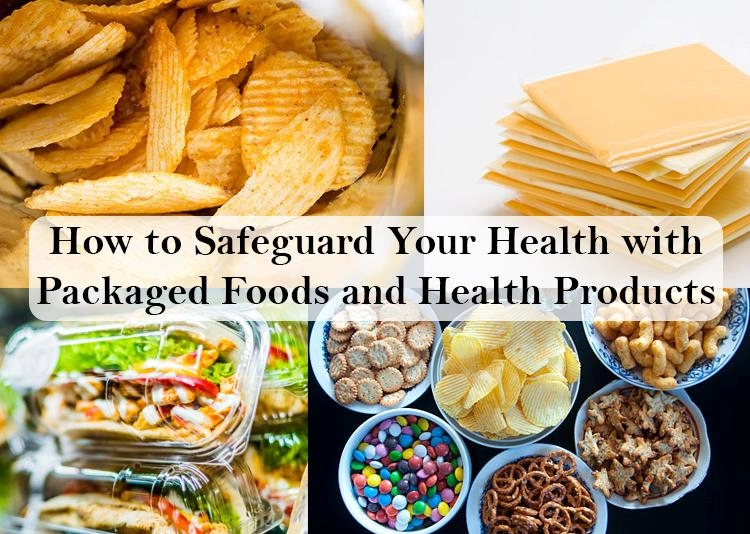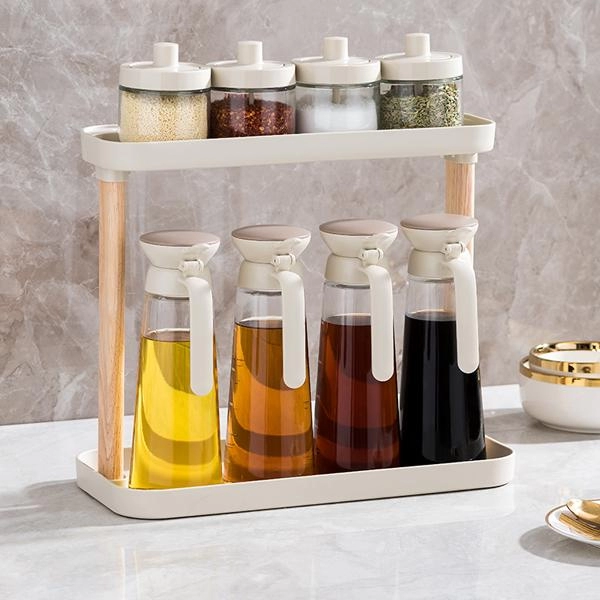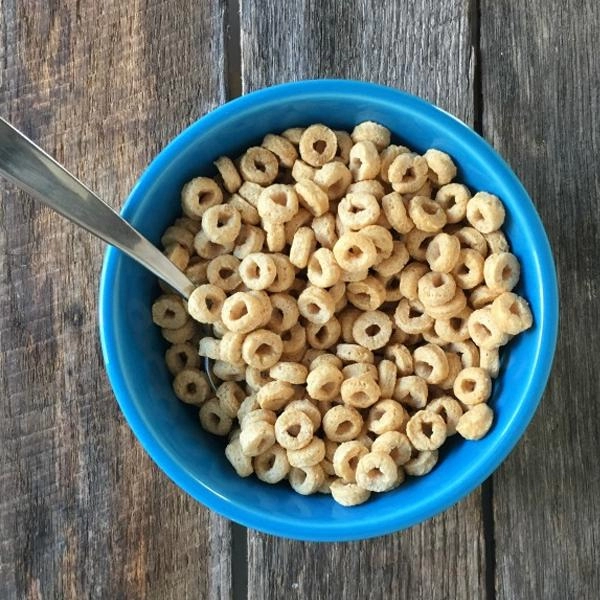How to Safeguard Your Health with Packaged Foods and Health Products

In our busy lives, we often turn to packaged foods and health products for convenience and well-being. They promise a lot—energy, health, and happiness. But what's inside the packages can be tricky. Fancy labels and big claims don't always mean they're good for us. Sometimes, they can even be harmful. This guide is like a map through this tricky world. We'll explore different types of products, like herbal supplements, kitchen stuff, cleaning supplies, and more. We'll learn what's good for us and what to watch out for. Think of it as your secret to making sure you stay healthy while using these products. So, let's begin this journey to discover what's really in those packages and how to make choices that keep you safe and healthy.
1. Herbal Supplements: Don't be Fooled

Some herbal supplements make big promises, but they often lack scientific proof. People might use these supplements instead of seeking proper medical help, delaying their recovery.
- Homeopathy: The Unproven Path - Homeopathic products aren't rigorously tested. That means you might be unknowingly exposing yourself to things that aren't safe.
- Allergens in Hiding - For those with allergies or sensitivities, not knowing what's in a product can lead to bad reactions. Always check for allergen information to stay safe.
2. Kitchen Secrets: Oils and Seasonings:

Cooking oils with hidden unhealthy fats can lead to heart problems and more. Seasonings can sneak in too much salt, causing high blood pressure and heart issues.
- Organic Misunderstanding: Don't be fooled by "organic" labels alone. Even organic products can have too much sugar, artificial stuff, or unhealthy fats.
3. Home Care Hazards:

Cleaning products can hide harmful chemicals. Breathing them in or getting them on your skin can lead to health problems.
- Eco-Friendly, but not Really: Some products claim to be eco-friendly when they're not. That means you might think you're helping the environment when you're not.
- Air Fresheners' Hidden Side: Air fresheners can have stuff that makes allergies and breathing trouble worse. Be careful if you're sensitive.
4. Immunity Boosters: Truth vs. Fiction:

Some products say they boost your immunity, but they might not. Relying on them alone means you might forget other important things like eating well and staying active.
- Supplement Overload: Taking too many supplements can be bad for you. It can mess up your body's balance and make you sick.
- Overall Health Matters: Focusing only on immunity boosters might make you miss other health issues. It's important to look at your whole well-being.
5. Children's Products: What to Watch Out For:

Kids' snacks can be full of sugar and additives. That's not good for their health
- Baby Care Cautions: Baby products can have harmful stuff in them. It might irritate your baby's skin and cause health problems.
- Learning Through Play: Some toys claim to be educational, but they might not be. Make sure your child's toys actually help them learn and grow.
6. Weight Loss and Fitness: Sorting Fact from Fiction:

Weight loss products can promise a lot, but not all of them deliver. Some can even be risky.
- Diet Dangers: Diet supplements can contain dangerous hidden stuff. Be careful what you put in your body.
- Fitness Falsehoods: Some fitness equipment might not work as advertised. That can lead to wasted time and frustration on your fitness journey.
In all of these categories, the harm often stems from misleading marketing and a lack of transparency. Consumers may inadvertently put their health at risk by making choices based on deceptive claims rather than sound scientific evidence or reliable information. To safeguard one's well-being, it's crucial to approach product selection with skepticism, seek informed advice, and advocate for better regulations and transparency in the marketplace.
Read More: How Packaged Food Brands Marketing Make False Claims that Are Not Healthy
Navigating the Path to Healthier Choices
1. Understanding Food Labels
The journey to healthier packaged food starts with understanding food labels. When you pick up a package, take a moment to read the nutrition facts and ingredient list. Look for foods that are:
- Rich in Nutrients: Seek foods that are packed with vitamins and minerals, such as vitamin C, vitamin D, zinc, and antioxidants. These nutrients play a crucial role in supporting your immune system.
- Low in Added Sugar: Excessive sugar intake can weaken your immune response. Opt for products with little to no added sugars, and be mindful of hidden sugars under various names on the ingredient list.
- High in Fiber: Fiber not only aids digestion but also contributes to a balanced gut microbiome, which plays a significant role in immune health. Choose packaged foods that are a good source of dietary fiber.
2. Immunity-Boosting Ingredients to Look For
- Vitamin C: This powerful antioxidant is known to boost the immune system. Look for packaged foods that contain vitamin C-rich ingredients like oranges, strawberries, or bell peppers.
- Probiotics: A healthy gut is essential for a strong immune system. Yogurt, kefir, and other fermented foods often contain probiotics that support gut health.
- Turmeric: This vibrant spice contains curcumin, which has anti-inflammatory and antioxidant properties. Some packaged foods, like curry sauces or spice mixes, feature turmeric as a key ingredient.
- Ginger: Ginger is another immune-boosting ingredient known for its anti-inflammatory properties. You can find ginger-flavored teas and snacks in many packaged food sections.
- Zinc: Zinc is a mineral that supports the immune system. Some cereals and snack bars are fortified with zinc.
3. Low-Sugar Snacking for Immunity
Snacking is a common part of our daily routine, and it's an area where many people consume excess sugar unknowingly. Instead of reaching for sugary snacks, consider these options:
- Nuts and Seeds: Almonds, walnuts, and pumpkin seeds are rich in healthy fats, fiber, and essential nutrients.
- Greek Yogurt: Greek yogurt is a protein-packed snack that also provides probiotics for gut health. Choose plain yogurt and add fresh berries for a touch of sweetness.
- Vegetable Chips: Look for vegetable chips made from sweet potatoes, beets, or other root vegetables. These can satisfy your craving for something crunchy without the added sugar.
4. Allergen-Free Immunity Options
For those with food allergies or sensitivities, finding packaged foods that align with their dietary restrictions can be challenging. However, it's still possible to support your immune system with allergen-free options:
- Gluten-Free Oats: If you have gluten sensitivity or celiac disease, gluten-free oats can provide a source of fiber and nutrients. Use them in oatmeal or as a base for homemade granola.
- Dairy-Free Probiotic Drinks: Some brands offer dairy-free probiotic drinks made from coconut or almond milk, providing a dairy-free source of gut-friendly bacteria.
- Nutrient-Packed Smoothie Mixes: Look for smoothie mixes that are free from common allergens. These mixes often contain a blend of fruits, vegetables, and immune-boosting ingredients like spirulina or chlorella.
Making informed choices about packaged foods doesn't mean sacrificing taste or convenience. By paying attention to labels and seeking out foods with immunity-boosting ingredients, you can nourish your body and support your immune system even when choosing packaged options.
Remember that while packaged foods can play a role in your diet, a balanced diet that includes fresh fruits, vegetables, lean proteins, and whole grains is essential for overall health. Use packaged foods as a complement to your diet, not a replacement for wholesome, natural foods.
By making smart choices in the supermarket, you can take a step toward a healthier, more resilient immune system. Your body will thank you for it in the long run.
Conclusion: Making Informed Choices
As we navigate the world of packaged foods and health-conscious products, it's crucial to remain informed and discerning consumers. To minimize the potential harm of packaged foods:
- Carefully read food labels, avoiding products with excessive sugar, unhealthy fats, and high sodium levels.
- Prioritize whole, unprocessed foods in your diet to ensure a diverse range of nutrients.
- Be mindful of portion sizes to prevent overeating.
A balanced diet that includes plenty of fruits, vegetables, lean proteins, and whole grains remains the cornerstone of good health. Use packaged foods and health care products as complements to your diet, not replacements for wholesome, natural foods. By making informed choices, you can safeguard your health and well-being in an environment filled with processed and packaged options.

